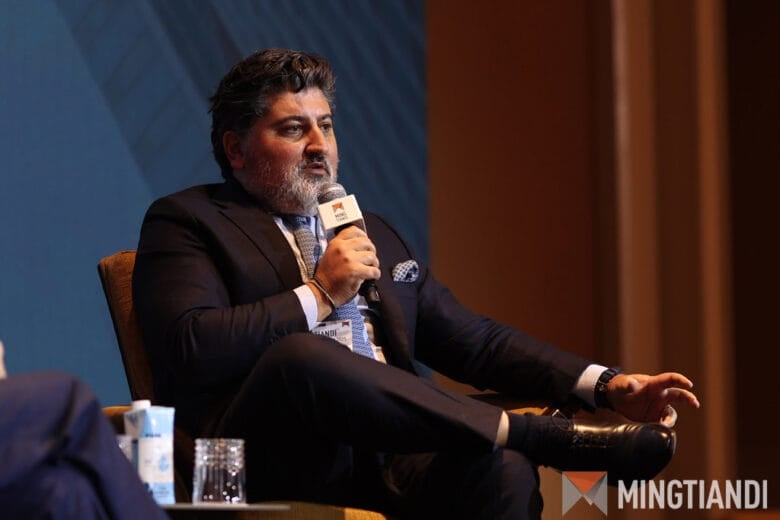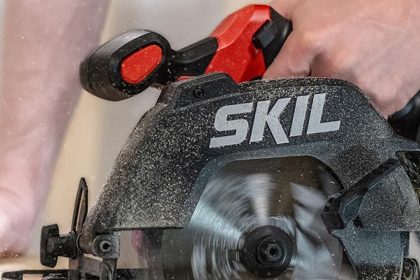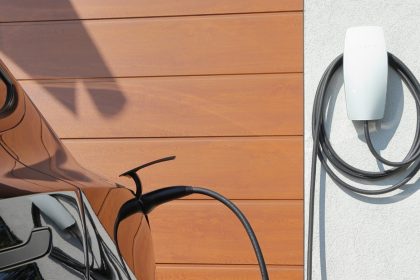Australia’s largest residential-for-rent owner and operator Scape aims to grow its portfolio to at least 100,000 housing units by 2030 through expansion into the Japanese market, diversification into senior housing, and growth of its build-to-rent apartment business.
That’s according to Stephen Gaitanos, co-founder, managing director and group CEO of Scape Australia, who sat down on Tuesday with Mingtiandi founder Michael Cole for a spotlight interview at Mingtiandi’s Singapore Forum which was sponsored by Yardi.
With the parent company of Scape and apartment provider Rent-to-Live now reported to be in due diligence to acquire a $1.9 billion senior living platform, Gaitanos and his team have set a goal of covering the full spectrum of housing segments under a new corporate identity in line with its broader aspirations.
“So as of almost last week, we’ve decided to transition to The Living Co. Scape is still our PBSA (purpose-built student accommodation) brand. Rent-to-Live is our build-to-rent brand. And as we accumulate new businesses across the living spectrum, whether it be senior housing, affordable and social housing, PBSA, or build-to-rent, the sky’s the limit within that living sector,” said Gaitanos.
Foray into Japan
Having assembled a portfolio of 26,000 housing units in Australia with backing from institutional investors including APG, Bouwinvest and Ivanhoe Cambridge, Scape now aims to expand into senior living, affordable housing and social housing, while also branching into new geographies, including a goal of entering the Japanese market by the end of this year.
Scape founder Stephen Gaitanos is rolling out The LIving Co as a new group brand
Having researched the market for three years, Scape sees an opening to enter Japan this year, focusing on the Tokyo market, taking into consideration low interest rates and a weak yen.
The 12-year-old company intends to leverage its scale, technologies and customer engagement experience at home to provide a branded offering in Japan, said Gaitanos.
“We’re not going to go there and buy a 20,000-apartment multifamily portfolio. It’s a bit about crawling before we walk. And once we’re there, we’ll add value. But certainly leveraging of the almost 26,000 apartments we have at home helps,” said him.
‘Disruption’ in Senior Housing
In its home turf, Scape aims to “disrupt” the senior housing sector local media reports revealing last month that Scape was in exclusive talks to buy Aveo, which operates 67 retirement villages in Australia, from Toronto-based investment giant Brookfield.
Gaitanos was not able to comment on the reported talks, while admitting Scape “certainly has the ambition to grow into that sector”.
“As we think about senior housing, that sector in itself is too fragmented and it needs a bit of leadership from someone to kind of disrupt,” he said. “There isn’t a customer-centric model that can provide the service that our seniors need. And frankly, we shouldn’t even be calling that because 75-year-olds are much younger, fitter, healthier than they’ve ever been.”
Having created a portfolio of about 50 buildings that include 24 self-developed towers, Scape has achieved a net internal rate of return (IRR) of around 15 to 16 percent over the last ten years, despite interruptions from the Covid-19 pandemic, according to Gaitanos.
The interview was part of the fourth annual MIngtiandi Singapore Forum, which featured a series of discussions on the living sector.
Scape chief capital officer Tjarko Edzes appeared in a panel focused on student housing investment globally, which also featured speakers from Mapletree Investments, Global Student Accommodation and Singapore’s Wee Hur Holdings.
A panel on Australia’s living sector brought together speakers from Greystar, Macquarie Asset Management-backed Local:Residential, Warburg Pincus and Kio Investment Management.
An Interview in Pictures











